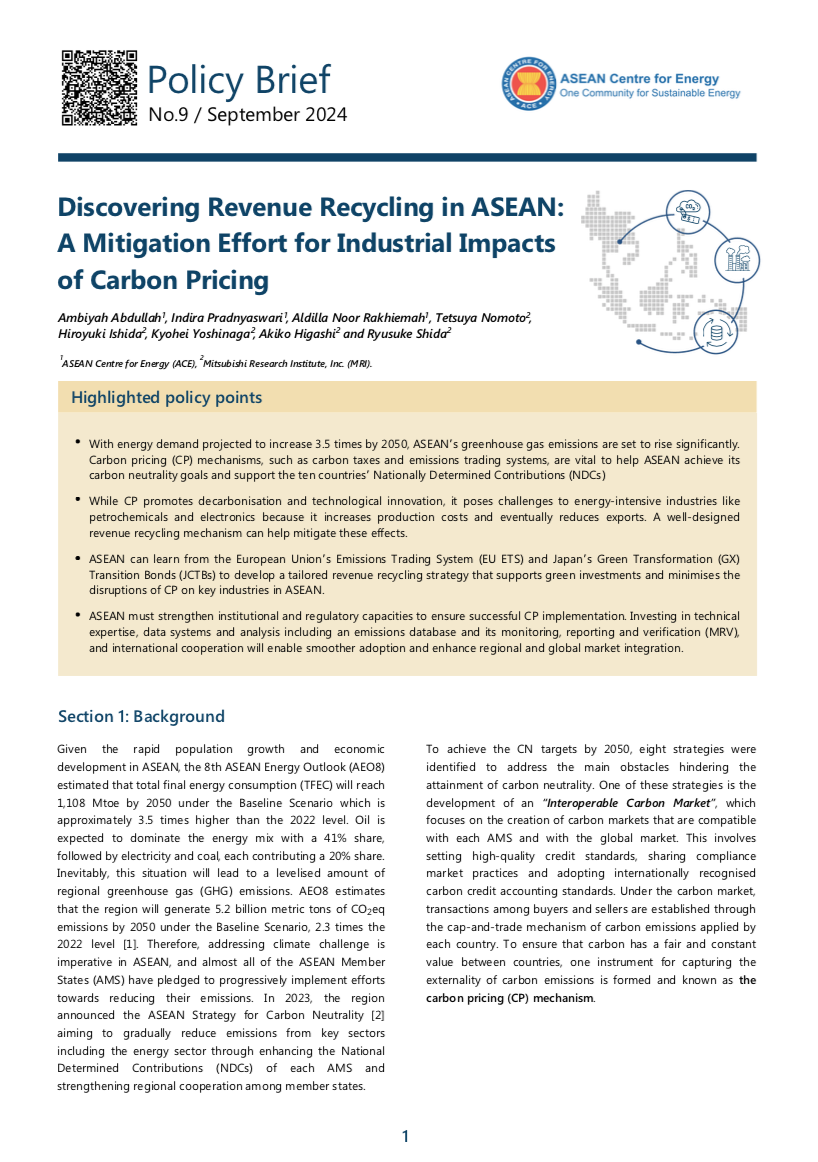Discovering Revenue Recycling in ASEAN: A Mitigation Effort for Industrial Impacts of Carbon Pricing

Category
Author
Ambiyah Abdulla, Indira Pradnyaswari, Aldilla Noor Rakhiemah, Tetsuya Nomoto, Hiroyuki Ishida, Kyohei Yoshinaga, Akiko Higashi, and Ryusuke Shida